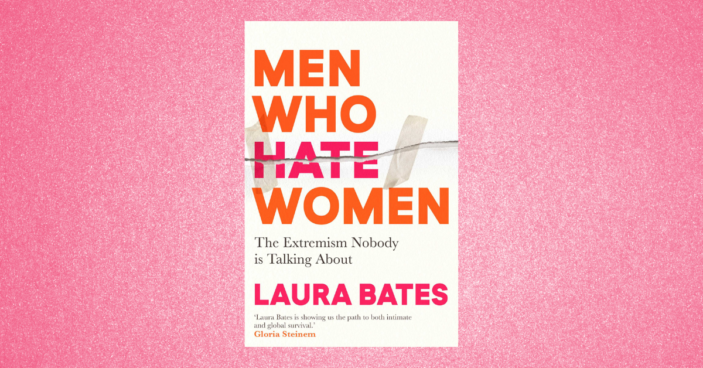
Laura Bates is an author, educator and the founder of the Everyday Sexism Project. In interviews she states that she’s witnessed a change in the young men she’s been teaching; and that she has more hostility and resistance to her lessons about feminism and sexism. In identifying this, she had the kernels of an idea for her latest book, an important one called Men Who Hate Women.
It is clear that Bates had done a lot of research for this. She draws upon different statistics, anecdotes and content from many interviews. In a chapter on incels – involuntary celibates – she describes how she infiltrated this online community by creating an online persona named Alex. She also offers a few solutions to the problems that have arisen. But, some change feels elusive because these are big problems.
Bates’s hard work will challenge readers and make them reconsider the various players in the manosphere. Some people may have dismissed these groups as minor or fringe ones; however, she disputes this in light of #MeToo and the Trump administration. Bates attempts to join the dots between them all and in doing so, makes the argument that misogyny is far more pervasive than we may have thought.
This book is not an easy read, as it has some uncomfortable content. Bates has been sexually assaulted. She is also a regular recipient of rape and death threats, and she does delve into some of this. The book is also quite long and it can be a tad dry at times. Bates’ approach is similar to an academic text, with long paragraphs of text rather than presenting things in shorter, more digestible chunks.
There’s also some repetition in Bates’ arguments, which can make some of the chapters a longer slog than others. This could be because Bates divides the groups into separate ones including men who hate, prey, avoid, blame, hound, hurt, or are afraid of women. She also describes men exploiting other men, and men who hate their male peers who hate women. There are definitely crossovers, as these groups are not all mutually exclusive. The appalling behaviour is out there and probably doesn’t need to be broken down into quite so many specifics.
Where Bates succeeds is in describing how influential some of these groups are. Some readers may discover “Men going their own way” for the first time, for instance. Other groups like pick-up artists will likely be familiar to readers, as they have been around for some time and most of Bates’ content has been covered before by other media commentators. What some readers may find disconcerting is how various members of these groups describe a man’s entitlement to sex and frightening views on rape.
This can be quite a gut-wrenching read at times. It is awful to think that these groups are capable of grooming impressionable young followers into their extreme ideologies. Bates takes a heavy hand in likening these groups to extremists like white supremacists and religious jihadists. But perhaps this is essential in calling out things that have been accepted in society for far too long.
In Men Who Hate Women, Laura Bates continues to provide a bold and strong voice for feminism. She tackles misogyny head-on and is an individual who is worthy of a platform. In Men Who Hate Women she challenges readers to pay attention, calling out issues that have been both pervasive and under the radar for far too long. Hopefully, books like Bates’s and other societal forces can galvanise people to enact real change.
![]()
![]()
![]()
![]()
![]()
THREE AND A HALF STARS (OUT OF FIVE)
Men Who Hate Women by Laura Bates is out now through Simon & Schuster Australia. Grab yourself a copy from Booktopia HERE.
